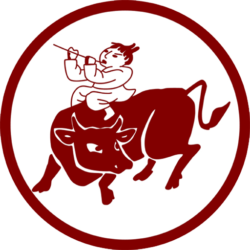In this blog I will be exploring the body, the muscles, nervous systems, fascia and organs and seeing how they all relate to each other.
I’m going to try to put up a new article every week or two.
This week I want to make a general point, which you might say is political. Is our body organised democratically?
Psychologists, Neuroscientists, Biologists and Physiologists all agree that there is no such thing as the individual. Descartes thought that there was – in fact he famously said “I think therefore I AM” and he even identified the seat of this central “I” to be the Pineal Gland in the centre of the brain.
Read Daniel Dennett’s book “Consciousness Explained” for the latest evidence to show that Descartes was wrong. A multitude of experiments show that, when we make a decision, many different autonomous impulses are competing with each other and the winner comes into consciousness. We actually make the decision a few seconds before we are conscious of having made it.
Neuroscientists are exploring how different parts of the nervous system are actually autonomous agents, like separate people, who communicate with each other. Oliver Sacks, in “The Man who Mistook his wife for a hat” writes about the weird and wonderful things that happen when this communication breaks down. For instance, people who have had their corpus callosum severed (which used to be done to treat epilepsy) find that the left and the right halves of their body are feeling , thinking, sensing and interpreting different things. But the people concerned don’t notice – they maintain the illusion of being one person.
Psychosynthesis has coined the term sub-personalities for almost autonomous aspects of ourselves. So one day we might feel and act like a hurt child, the next we might be a hard-nosed businessman, the next a loving father. All of these are me – I am a community. Deeper than these, there are other members of the me-community: Carl Jung described Archetypes which can be seen as aspects of personality which are common to many humans – sort of like ‘human instincts’. Just as a horse knows how to walk without being taught (and can do so within minutes of being born) – so a human knows how to be a Mother (nurturing, supportive, non-judgemental) or a Hero (brave, self-sacrificing, resilient, on a quest). You can see these appearing in children’s play. “I’m the king of the castle”, “Doctors and Nurses”, “Mummies and Daddies” etc.
But even deeper, the Enteric System is a network of 500 million neurons wrapping round the gut. It acts as a separate brain, which knows what the body needs and creates moods and hungers to satisfy them. The heart beats even if disconnected from the brain. Organs function fairly autonomously, they are not controlled by some central controller. Each cell only communicates with its neighbours and decides what to do from the feedback it gets from these close companions, not from some global system.
So I am a community.
The question is, what is the politics of the me-community? Is it an autocracy or a democracy?
In many cases only a subgroup of this large community makes decisions and has a voice to express itself. This means that the needs and desires of the other members of the self-group are ignored and suppressed.
This is the cause of many many physical and psychological problems.
So I think that one of the main aims of therapy is to help the person to be democratic within themselves.
That’s the point of this blog – to explore how to give voice to all the members of one’s community and to help them to communicate and cooperate with each other.

